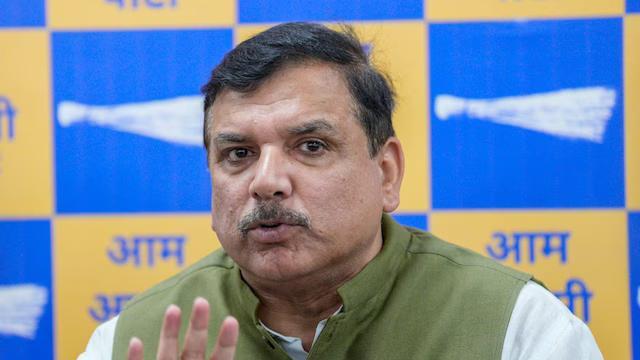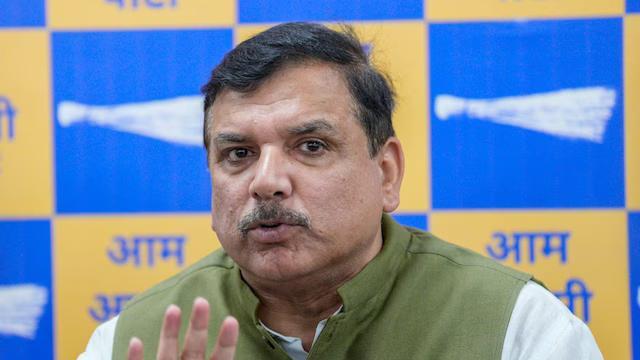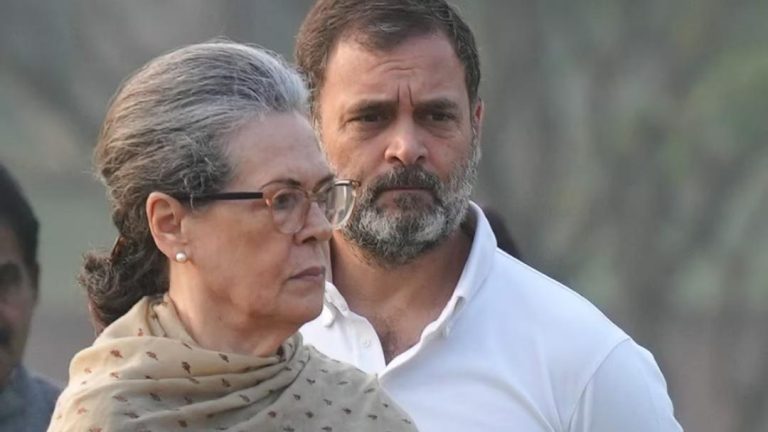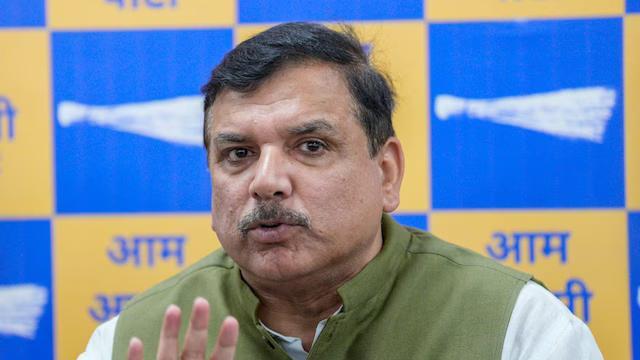
Game of Hide & Seek Going On: AAP’s Sanjay on ED’s Summon to Vadra
In the ongoing saga of corruption cases in India, the Enforcement Directorate (ED) has once again summoned Robert Vadra, husband of Congress MP Priyanka Gandhi Vadra, in a land deal case. This development has sparked reactions from various quarters, with AAP MP Sanjay Singh being one of the first to comment on the matter.
Sanjay Singh, an MP from Rajya Sabha, was quoted as saying that a “game of hide and seek is going on” in the case. This remark is reflective of the perception that the ED is making progress in the case, but then suddenly losing steam or taking a backseat. Singh’s statement suggests that the investigation is not moving forward consistently, and that the ED’s actions are not transparent.
The ED’s latest summons to Robert Vadra are in connection with the 2012 land deal case involving the Jaipur Development Authority (JDA) and Skylight Hospitality, a company linked to Vadra. The ED had earlier raided several properties linked to Vadra and his associates in connection with the same case.
Singh’s comment is significant because it highlights the lack of consistency in the ED’s investigation. In recent times, there have been instances where the ED has made significant progress in a case, only to lose momentum or drop the probe altogether. This has led to accusations that the agency is not functioning independently and is instead influenced by political considerations.
The ED’s summon to Vadra has also raised questions about the timing of the development. The investigation into the land deal case has been ongoing for several years, and it is unclear why the ED has chosen to issue a fresh summons to Vadra now. Some have speculated that the move is intended to deflect attention from other corruption cases, or to create a distraction from the government’s own scandals.
The Congress party has been quick to defend Vadra, with party leaders describing the ED’s summons as a “witch-hunt” aimed at targeting the Gandhi family. The party has also accused the BJP-led government of using the ED to settle political scores.
On the other hand, the BJP has claimed that the ED’s investigation is a “routine” process and that Vadra is being given a fair chance to cooperate with the probe. The party has also pointed out that the ED’s summons to Vadra are based on documents and evidence collected during the investigation, and that Vadra is free to provide any additional information or clarification he may have.
The game of hide and seek, as Sanjay Singh has aptly put it, is far from over. The ED’s latest summons to Vadra have raised more questions than answers, and it remains to be seen what action the agency will take based on the documents they have. Will the probe continue to drag on, or will the ED finally make some concrete progress in the case? Only time will tell.
In the meantime, it is essential to maintain transparency and accountability in the investigation. The ED must provide regular updates on the status of the probe and ensure that its actions are not influenced by political considerations. The government, too, must ensure that the ED is functioning independently and that its powers are not being misused.
As the game of hide and seek continues, one thing is clear: the public’s trust in the system is at stake. If the ED’s investigation is found to be biased or manipulated, it will have severe consequences for the government’s credibility. It is essential that the agency conducts itself in a professional and transparent manner, and that the government ensures that the investigation is free from political interference.
In conclusion, the game of hide and seek is indeed on, and it is up to the ED and the government to ensure that the probe is conducted fairly and transparently. The public is watching, and it is essential that the system delivers on its promise of justice and accountability.




